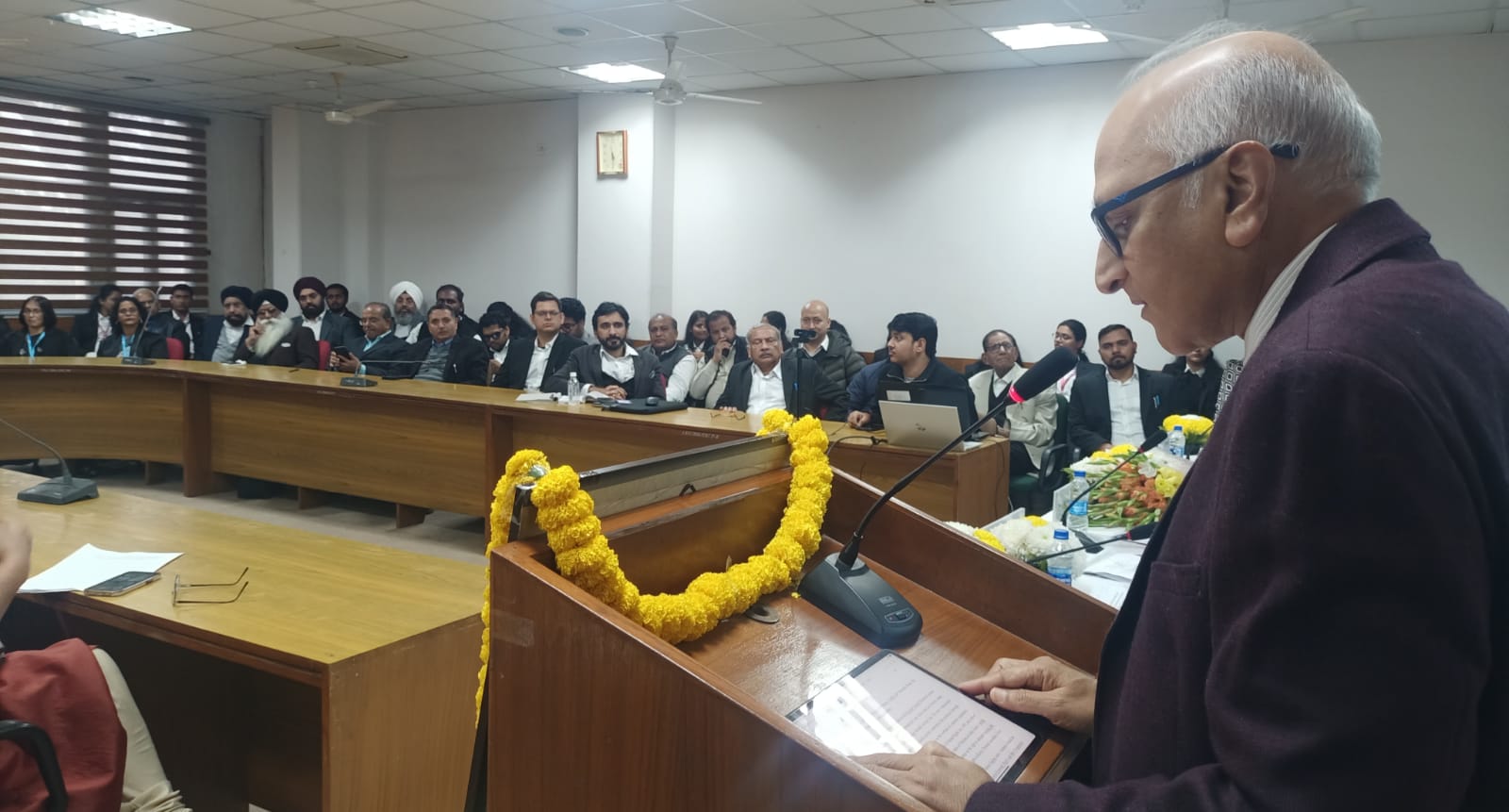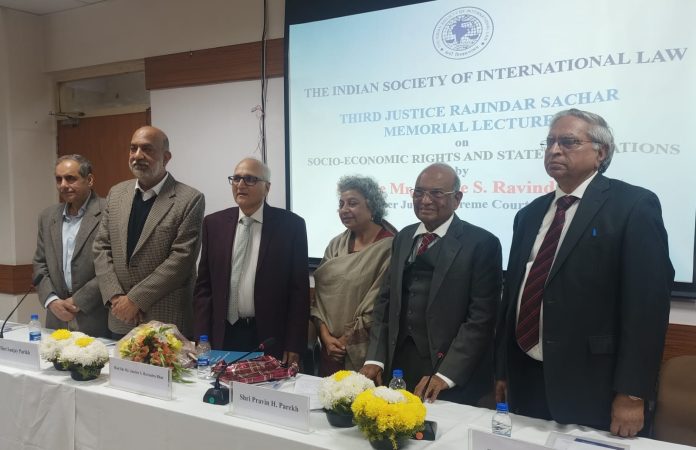New Delhi, Feb. 15: The Indian Society of International Law (ISIL) organized Justice Rajinder Sachar Third Memorial Lecture on Socio-Economic Rights and States Obligation here Wednesday.
Justice S. Ravindra Bhat, while delivering Sachar Memorial lecture, recalled his association with Justice Sachar and said, “He was a very determined advocate of civil liberties and his advocacy didn’t stop even when he became a judge. He continued that kind of advocacy on the bench. He was one of the most liked, loved judges, vastly compassionate. One never found him wanting in kindness as a judge. I don’t remember having ever heard a harsh word as a judge. For juniors, this was the greatest encouragement, the greatest boost one could ever get. Whatever encomiums, I am receiving, is all because of what I learned from people like Justice Sachar and some other great judges in the Supreme Court.

Justice Ravindra Bhat further said, “The International Covenant on Economic, Social and Cultural Rights (ICESCR) guarantees a comprehensive range of substantive rights, including to name a few, the right to self -determination, equality, the right to work, unjust and favourable conditions of work, an adequate standard of living, the right to organise and the right to education. Each of them very significant. Article 2 of this ICESCR describes the nature of the legal obligations in the manner in which the states should approach the implementation of these rights.”
He added, “States are required to take steps to the maximum of their available resources with a view to achieving progressively the full realisation of ICESCR guidelines. The question is, what is progressive realisation of socio-economic rights? Now more than ever, in an era of increasingly global armed conflict, rapidly declining climate security and increasing threats of misinformation and disinformation around the world.”
“While there is still a dichotomy between civil political rights and socio-economic rights, there is a fairly broad consensus today that many aspects of economic, social and cultural rights do not differ from civil and political rights as much as maybe traditionally is true… Social economic rights relate at the fundamental level to conditions of human existence and survival with dignity,” said Justice Bhat.
On international Crimes, he said, “One topic which is of great contemporary importance and also very controversial is the attack on Gaza. Of course, there was a horrific attack by Hamas but in response, so far has been so disproportionate that even the ICJ was moved to say and of course it stopped short of saying it is genocide but it conceives that there are elements of genocide.”
“Future generations have to articulate, build upon and expand as human progress takes an upward turn across the world. However, it is also necessary now more than ever to move beyond the minimum, mere minimum core obligations to make substantive collaborative goal commitments towards a more equal, more egalitarian, more sustainable future for all that begins and ends with the actual realization of these socio-economic rights,” said Justice Bhat.
Chairing the program, Pravin H. Parekh, ISIL President said, “The debate over the recognition and protection of socio-economic rights is intensifying globally in this period of rapid change and is starting to take center stage for both people and governments. States are expected to fulfil their duties as agents of change and action by addressing societal issues like social services, education, environment, and unemployment. Thus, this is the perfect time to comprehend state obligations and socio-economic rights.”
“Socio-economic rights seek to promote people’s dignity, autonomy, and welfare by making governments responsible for providing certain basic social goods and services. These could range from schooling, healthcare, and satisfactory housing to adequate incomes, humane labour conditions, and other resources crucial for a just and equitable society. Through legal recognition and accountability mechanisms, socio-economic rights attempt to guarantee state support and provision of these social goods as a matter of right rather than optional services,” said Parekh.
Professor V.G. Hegde of Centre for Legal Studies, JNU delivered welcome address while senior Supreme Court advocate Sanjay Parikh made introductory remarks on Justice Sachar.
The first Justice Sachar Memorial Lecture was delivered by Justice Madan Lokur on human rights and the second by Justice Narasimha on food security.




